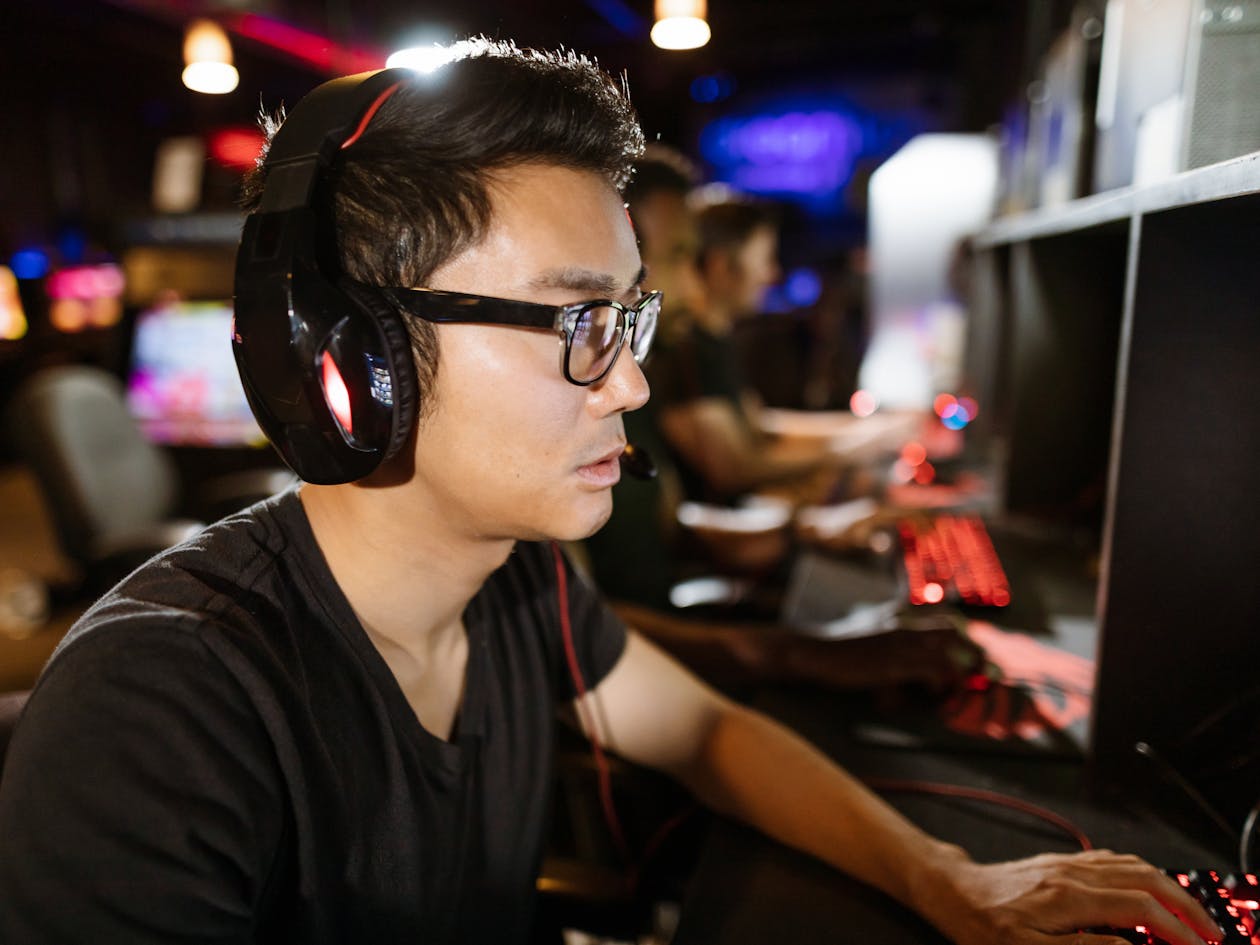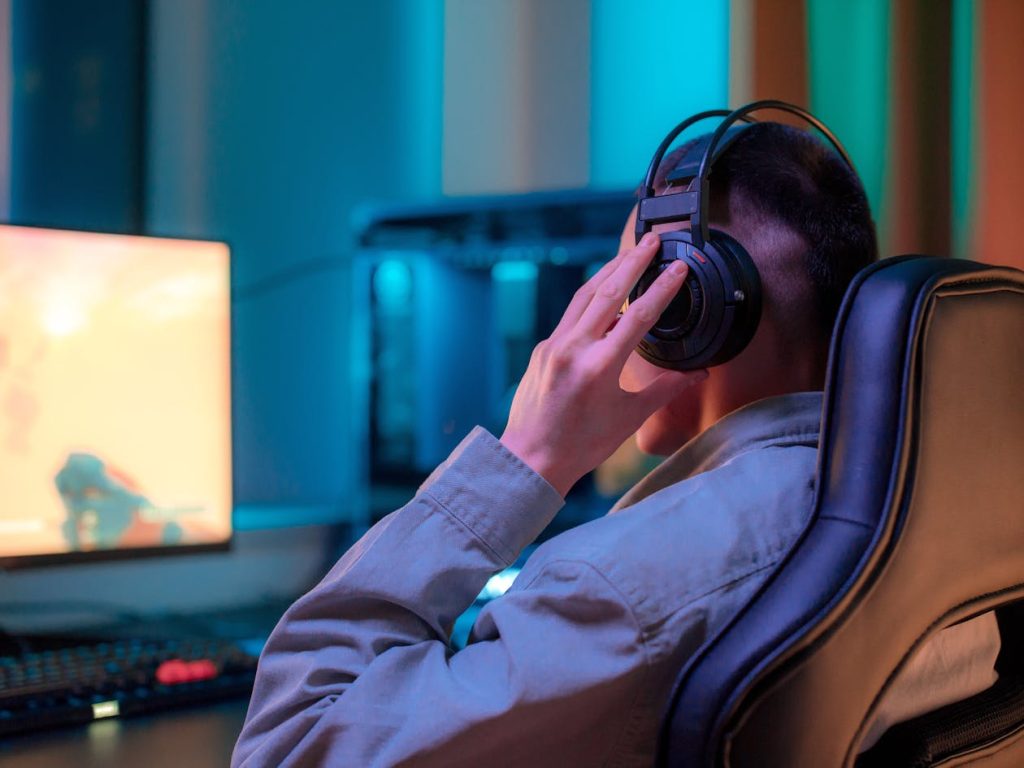Your cart is currently empty!
A Dad Hired ‘Virtual Hitmen’ to ‘Kill’ His Son in Video Games So That He Would Get a Job Instead

Desperation drives parents to extraordinary lengths. Some ground their children, others confiscate devices, and a few seek professional counseling. But one Chinese father chose a different path entirely, one that involved hiring strangers, coordinating attacks, and entering a digital battlefield where his son spent most of his waking hours. What started as paternal concern about unemployment would soon become an elaborate scheme involving multiple players across online gaming worlds. Mr. Feng had tried conventional approaches with his 23-year-old son, yet none seemed to break through the virtual barrier that kept his child from seeking real-world employment. His solution would blur the lines between parenting and warfare, creating a family drama that unfolded across both digital and physical realms.
When Parenting Gets Creative

Mr. Feng watched his adult son disappear deeper into online gaming worlds while job applications remained untouched and interview opportunities passed by unnoticed. Traditional parental conversations about responsibility and employment fell on deaf ears, creating mounting frustration in their Chinese household.
Twenty-three years old and unemployed, his son had replaced job searching with marathon gaming sessions that stretched through days and nights. Friends had moved on to careers and relationships while his son remained locked in virtual quests and digital achievements that paid no bills and built no future.
Conventional wisdom suggested removing internet access or gaming equipment, yet such drastic measures risked destroying their relationship entirely. Mr. Feng needed a solution that could reach his son within the gaming environment itself, fighting fire with fire in the digital spaces where his child felt most comfortable.
Family dynamics had shifted dramatically as gaming consumed more time and energy than any other activity in his son’s life. Parents worldwide struggle with similar challenges, but few would contemplate the extreme measures that Mr. Feng was about to implement.
Mission: Kill the Avatar
Professional gamers received an unusual contract request through online gaming communities. Mr. Feng sought skilled players willing to hunt down a specific character across multiple online games, repeatedly killing the avatar to disrupt gameplay and discourage continued participation.
Multiple assassins accepted payment to target his son’s gaming characters systematically. Each hired player received descriptions of usernames, character appearances, and typical gaming patterns to ensure accurate identification and successful elimination missions.
Coordinated attacks began appearing in every game his son joined. Virtual hitmen struck without warning, killing characters moments after respawn, making progress impossible and transforming enjoyable gaming sessions into frustrating exercises in futility.
Payment structures incentivized persistence among hired players. Mr. Feng understood that occasional defeats might be dismissed as bad luck, but consistent targeting would eventually raise questions and potentially drive his son away from gaming entirely.
Gaming Addiction Meets Parental Desperation

Employment statistics reveal growing concerns about young men choosing gaming over traditional career paths. Research shows that unemployed men in their early twenties have replaced 75% of their former working time with video game activities, creating economic ripple effects across multiple industries.
Gaming addiction affects decision-making, behavioral control, and emotional regulation according to brain imaging studies. Players often struggle with impulse control and risk-taking behaviors that extend beyond gaming environments into real-world situations, including employment decisions.
Mr. Feng recognized symptoms that many parents fail to identify early enough to prevent serious consequences. Extended gaming sessions replaced sleep schedules, social interactions, and productive activities that typically lead to career development and financial independence.
Professional intervention seemed premature for a situation that appeared voluntary rather than compulsive. Many families struggle to distinguish between excessive hobby participation and genuine addiction requiring medical treatment and behavioral therapy.
Son Discovers the Plot
Repeated targeted killings across different gaming platforms began raising suspicion among online communities. Professional players typically attack randomly or focus on high-value targets, making the consistent pursuit of one specific character highly unusual and noticeable.
Curiosity eventually overcame frustration as his son questioned the attackers about their persistent focus on his avatars. Gaming etiquette normally prevents such direct communication between rivals, but the unusual pattern warranted investigation into motives and methods.
Truth emerged during one confrontation when a hired player revealed the employment arrangement. Family conflict suddenly made sense as virtual harassment connected to real-world unemployment pressures that had been building for months without resolution.
Shock replaced anger as his son realized the elaborate lengths his father had gone to communicate concerns about gaming habits and career prospects. Few families experience such dramatic revelations about parental desperation and unconventional intervention methods.
Mission Failed

Gaming addiction specialists questioned the effectiveness of confrontational approaches to behavioral modification. Professor Mark Griffiths from Nottingham Trent University provided expert analysis about family intervention strategies and their likely outcomes.
“It’s not going to do much for family relations,” Professor Griffiths observed about virtual assassination tactics. His research into excessive gaming behaviors suggests that underlying psychological issues require different treatment approaches than direct gaming interference.
Professional game designers and community managers recognize that player elimination represents normal gameplay rather than a meaningful deterrent to continued participation. World of Warcraft expert Olivia Grace explained that “being killed by someone happens all the time. People are just like that online.”
Behavioral psychology research indicates that external pressure often strengthens addictive behaviors rather than eliminating them. Top-down interventions frequently fail because they address symptoms rather than root causes driving excessive gaming participation.
Gaming Epidemic Among Young Men
Statistical analysis reveals troubling correlations between increased gaming availability and decreased employment rates among specific demographic groups. Young men without college degrees show the strongest patterns of replacing traditional work activities with gaming sessions, creating a generational shift in workforce participation.
Research demonstrates that over the past 15 years, unemployment rates for men in their early twenties have risen sharply alongside gaming industry growth. Economic data shows these demographic groups have replaced approximately 75% of their former working time with video game activities, creating unprecedented workforce withdrawal patterns.
Game Quitters‘ community data provides insight into employment challenges facing excessive gamers. Survey results show 44% unemployment rates among members, with 21% working part-time positions and only 35% maintaining full-time employment status. Most concerning, 60% of community members earn less than $500 monthly, indicating severe economic disadvantage.
Economic impact calculations estimate billions in lost productivity when significant portions of working-age populations withdraw from labor markets. South Korea studies documented significant socioeconomic losses from excessive internet use, with government officials recognizing internet addiction as affecting approximately 20% of the population, suggesting global economic consequences reach substantial figures today.
Neurological research reveals how gaming addiction creates biological barriers to employment motivation. Brain imaging studies show structural changes in regions controlling decision-making, behavioral inhibition, and emotional regulation. Gaming addicts demonstrate increased risk-taking behaviors and impaired impulse control that directly interfere with job-seeking activities and workplace performance.
Dopamine deficiency represents a critical factor linking gaming addiction to unemployment challenges. Scientific studies document how excessive gaming depletes natural reward systems, making ordinary work activities feel unsatisfying and unmotivating. Career advancement requires sustained effort and delayed gratification that becomes neurologically difficult for gaming-addicted individuals.
Happiness surveys reveal that unemployed gamers often report contentment with their lifestyle choices until reaching their thirties. Depression and regret typically develop when career limitations become apparent and family formation goals seem unattainable, creating a delayed recognition of lost opportunities and skill development.
Why Virtual Worlds Beat Real Jobs

Gaming environments provide immediate feedback and measurable progress that employment searches rarely match. Job applications may receive no responses, while gaming achievements offer instant gratification and visible character advancement within predictable timeframes, creating psychological satisfaction that real-world career building cannot replicate.
Behavioral psychology research shows how gaming exploits fundamental human motivation systems more effectively than traditional employment structures. Games provide explicit expectations, consistent rewards, and immediate recognition for effort invested, while job markets offer uncertain outcomes, delayed feedback, and frequent rejection experiences.
“In games you know you have to complete a task to make progress toward your goal, on the other hand in the job market it’s a gamble. You could send out literally a hundred resumes and only hear back from one employer for an interview, and they still might not even hire you,” explained Ariel, a gamer struggling with employment challenges.
Risk-free failure in gaming contrasts sharply with real-world rejection experiences. Virtual death results in immediate respawn opportunities, while job rejection creates a lasting emotional impact and reduced confidence for future applications. Gaming provides psychological safety that employment seeking cannot offer, particularly for individuals with anxiety or depression issues.
Modern game design eliminates natural stopping points, creating endless progression opportunities that replace traditional work satisfaction. Players can continue advancing characters indefinitely without external validation or financial compensation requirements, satisfying achievement drives without real-world productivity.
Gaming also fulfills social connection needs that unemployed individuals often struggle to meet through conventional means. Online gaming communities provide friendship, recognition, and status advancement that may be absent from their offline lives, making virtual achievements feel more meaningful than potential career accomplishments.
Neuroscientist research demonstrates how gaming hijacks reward pathways originally designed to motivate survival activities like hunting, problem-solving, and social cooperation. Video games trigger these ancient satisfaction systems more intensely and reliably than modern employment, making work feel boring and unrewarding by comparison.
Economic dependency cycles develop when gaming addiction prevents employment, leading to increased gaming time due to a lack of structure and responsibilities. Unemployment provides more gaming opportunities, while gaming reduces employment motivation, creating self-reinforcing patterns that become increasingly difficult to break without external intervention.
When Gaming Becomes All-Consuming
Medical research documents serious health impacts from excessive gaming behaviors. European studies found gaming addicts missing 7.5 work days annually, comparable to social phobia patients and exceeding absence rates for depression and cardiovascular conditions.
Employment anxiety reaches a physical manifestation for recovering gaming addicts. Personal accounts describe vomiting before work shifts and overwhelming panic attacks when leaving gaming environments for real-world responsibilities.
Recovery success stories require professional counseling support and family commitment to behavioral change programs. Simple willpower proves insufficient against neurochemical changes caused by prolonged gaming exposure and dopamine regulation disruption.
Workplace performance suffers significantly when gaming addiction interferes with professional responsibilities. Concentration difficulties, sleep deprivation, and preoccupation with gaming progress create multiple performance issues affecting career advancement potential.
Father-Son Reconciliation

Family relationships reportedly healed despite the unconventional intervention methods employed by Mr. Feng. Communication eventually replaced virtual warfare as both parties recognized the underlying concerns driving desperate behavioral choices.
The effectiveness of hired assassin tactics remains questionable, according to gaming experts and addiction specialists. Virtual elimination fails to address the psychological satisfaction and social connection that gaming provides for isolated or anxious individuals.
Direct conversation about employment concerns and family expectations proved more productive than digital sabotage efforts. Professional mediation might have achieved similar results without damaging trust between family members through deceptive practices.
Resolution came through traditional family discussion rather than continued gaming interference. Both father and son learned valuable lessons about communication styles and the importance of addressing concerns before they escalate to extreme intervention measures.
Society’s Gaming Challenge

Video game addiction recognition as a legitimate mental health concern continues evolving within medical and psychological communities. Diagnostic criteria development helps families identify when gaming habits cross from recreation into compulsive behavior requiring professional treatment.
Economic implications extend beyond individual families to broader workforce development and productivity concerns. Society must balance entertainment industry growth with employment stability and career development support for vulnerable populations.
Support services for gaming addiction remain limited compared to traditional substance abuse programs. Stigma reduction and increased awareness can help families seek appropriate help before relationships deteriorate and employment prospects disappear entirely.
Educational institutions and employers increasingly recognize gaming skills as transferable to professional environments. Career counseling that connects gaming interests to viable employment paths may prove more effective than elimination-based approaches to behavioral modification.
